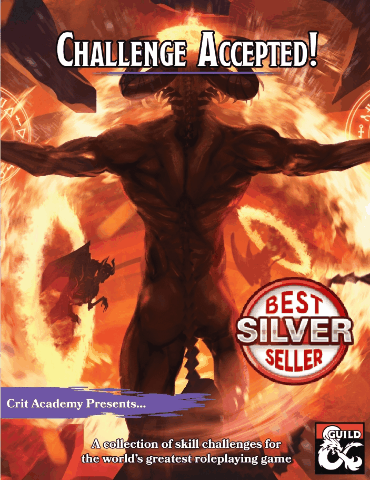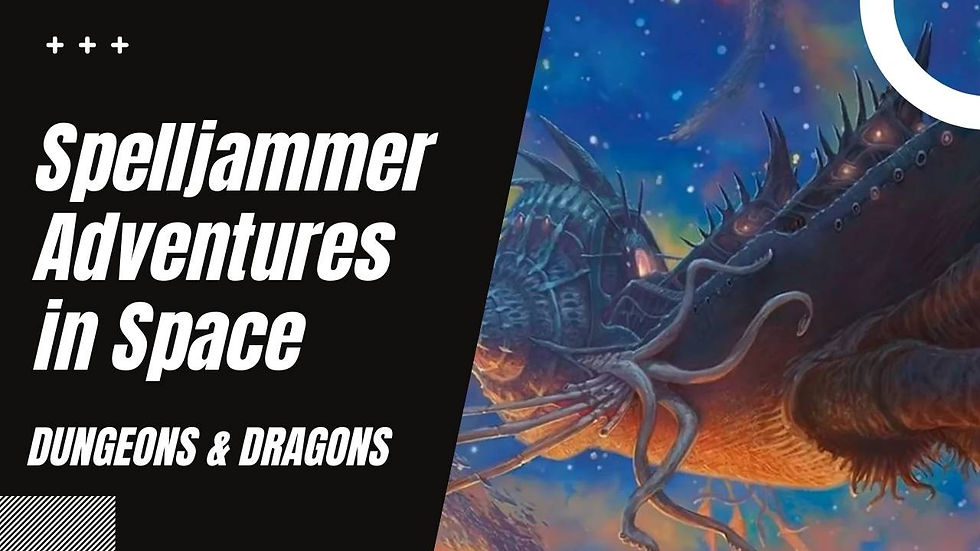D&D: Does PvP Ever Work? | Clash of Classes
- Justin Handlin

- Mar 5, 2022
- 7 min read
Updated: Mar 24, 2022
How do you handle PvP in D&D?
This is a question we've seen a lot. Can Player Vs Player (PvP) be fun in Dungeons and Dragons? We wanted to find out. So we created Clash of Classes.
PVP in Dungeons & Dragons is something that many try to avoid. The system itself was not designed for this in mind. But that doesn’t stop us from pitting classes against each other.
There have been quite a bit of learning experiences as we've run five official matches now. With more on the way.
D&D PvP Will Need Blind Preparation
The best way to ensure a balanced battle is to ensure the characters are prepped for battle before they know their opponents and the battle arena. This benefits everyone involved as the players can't design a character specifically designed to counter another. Instead, they are forced to think in a more utilitarian way. They must try to build to account for every situation. This extends to battle arena two. If a character knows the layout of the map, the hazards, and threats, then they can build to fit that exact scenario. By enforcing a blind contender and map, we get a more genuine battle experience.
D&D PvP Needs Suitable Battle Arenas
The arena the D&D PvP match takes place in needs way more than just a simple sand arena. A situation where the characters are just trading blows isn't exciting at all. The map itself needs to be a threat, a resource, and a tool. They need to be something a clever player can utilize in tandem with their spells and features. This is most notable when providing cover and objects that can block line of sight. This encourages movement and tactical thinking. Beyond that, having a savage octopus that can grapple targets if they get too close to water, or crackling clouds of lightning that are drawn to the nearest living creature keeps things moving at a wonderful pace.
There is so much more to talk about on this topic. So in this episode, we answer some questions and provide our thoughts on a PVP in Dungeons & Dragons. We are going into detail on the creation and challenges of building an interesting and fun PvP arena battle for viewers.
D&D Unearthed Tips and Tricks for DMs and Players
D&D Character Concept: Baern Brazzik, Male Dwarf
Description: This western man is abnormally tall for a dwarf. He has a large grey mantle and cape that has been intricately interwoven into his pastel robe. His whole body is exceptionally muscular. He wears a colorful flower in his red hair. His eyes are green and he is always smoking a pipe.
Personality: He is a bodyguard first and foremost. He believes firmly that knowledge should be universal. He is used to getting what he wants. In part because he is a meticulous planner.
History: He grew up in a lower-middle-class home, but living comfortably wasn't enough. Before the accident, he was one of the most outspoken anti-Elven activists. He was mortally wounded, saved by a kind and fast-acting Elven doctor. He has drifted from career to career and currently works as a Body Guard.
Motivation: Sabotage a competitor; and elven compassion

D&D Monster: Charr
Origin: Half-Red Dragon Veteran
Lost Features: Longsword (searing bite), shortsword, heavy crossbow, fright breath,
Searing Bite. Melee Weapon Attack: +5 to hit, reach 5 ft., one target. Hit: 6 (1d6 +3) piercing damage and 2 (1d4) fire damage.
Tail. Melee Weapon Attack: +10 to hit, reach 10 ft., one target. Hit: 6 (1d6 +3) bludgeoning damage and the target must succeed on a DC 15 Strength saving throw or be knocked prone.
Flamethrower. The charr exhales fire in a 40-foot line that is 5 feet wide. Each creature in that line must make a DC 15 Dexterity saving throw, taking 35 (10d6) fire damage on a failed save, or half as much damage on a successful one. If the target is a creature or a flammable object, it ignites. Until a creature takes an action to douse the fire, the target takes 3 (1d6) fire damage at the start of each of its turns.
REACTIONS
Deep Breaths. When a creature hits the charr with a ranged weapon or spell attack, the charr can use its reaction to roll to recharge its flamethrower.
D&D Encounter: Passing Knowledge
The characters hear rumors of a powerful champion accepting any challengers in a one-on-one match. The reward for defeating this warrior is a secret technique. The champion is to teach the first combatant to defeat them. The truth is, the champion is dying. They have no heirs to pass on their techniques to. So they set out to find someone worthy. There is more than just solid technique the challenger must possess. A short series of questions determines if they are worthy. Should the champion determine the challenger follows the champion's ideals, they will test their mettle and their character.
The champion is a full player class of the DM’s choosing. This is a great opportunity to include story-driven multiclassing, access to a particular feat, or even a magical item. The options or endless, but the battle will be one to remember.
D&D Magic Item: Black Dragon Mortar
Wondrous item, rare
This short carved wooden and steel tube is about 2 feet long and 8 inches in diameter. It is made from the saliva and scales of a black dragon mixed with arcane magic. One end is shaped to look like a roaring dragon head. The dragon's head end that’s pointed toward a target is open, and an orb of slick black can be seen at the other end as long as the mortar has at least 1 charge remaining.
The mortar has 4 charges for the following properties. It regains 1d4-1 expended charges daily at dawn.
Black Dragon’s Breath. You can expend 1 charge as an action to loose a 30-foot cone of black dragon acid. Each creature in the area must make a DC 15 Dexterity saving throw, taking 5d4 acid damage on a failed save, or half as much damage on a successful one. Additionally, any nonmagical weapon or armor begins to corrode. A weapon takes a permanent and cumulative -2 penalty to damage rolls. Armor being worn or carried takes a permanent and cumulative -2 penalty to the AC it offers.
Acid Bombardment. You can expend 3 charges as an action to launch an area barrage of acidic projectiles on a point you can see within 90 feet of you. Each creature in the area must make a DC 15 Dexterity saving throw. A creature takes 5d8 acid damage on a failed save, or half as much damage on a successful one. Additionally, any nonmagical weapon or armor begins to corrode. A weapon takes a permanent and cumulative -1 penalty to damage rolls. Armor being worn or carried takes a permanent and cumulative -1 penalty to the AC it offers.
D&D Dungeon Master Tip: Addressing Problematic Situations
When you’re aware that a situation is unfolding, addressing it immediately is the key toward reinforcing your game’s boundaries and moving back toward a fun environment. A quick and strong word from
the GM can often immediately put an end to an uncomfortable situation.
Sometimes, it can be as easy as saying the following:
“Hey, what you said really isn’t cool. Please don’t do that at my table.”
If the game moves on from there, that’s great. But if it doesn’t, you should always feel empowered to stand your ground and stand up for marginalized players who might have been the butt of a joke or the target of hostility.
If something happens during a game and a player brings it up to you later, listen to them, and address problems as might be necessary. Reiterate to your player that you’re committed to making the game fun for everyone and that you value his or her presence at the table. Most importantly, believe the player when they tell you they’ve been made to feel unwelcome or uncomfortable. If another player has caused a problem, address it with that player. It’s important for you to address a person who has done harm to another and not to punish the individual who’s told you they’ve been harmed.
D&D Player Tip: Roleplaying a Goblin
Goblins wear whatever is available, usually incorporating small trinkets, trophies, or interesting things they’ve stolen in their travels. These objects usually seem weird or pointless to others. A goblin’s clothes are a patchwork of different materials stitched together over the course of years. Its equipment is usually rusty or ramshackle but serviceable.
Following codes of conduct, or showing loyalty to a leader, goblins quickly get bored and move on. They are motivated by novelties, be they stolen treasures or new sights and sounds, or even bodily sensations unique or bizarre. Goblins live for sensation, going out of their way to explore, open, prod, taste, or rub up against new things—often to the disgust of non-goblin companions.
Goblins’ perceptiveness is curiously selective. A goblin would pass over one great treasure to grab a whole bunch of baubles. Their curiosity is what drives them to pilfer and plunder. They carry out raids and burglaries so they can acquire new things to take back to the warren. However, goblins don’t covet in the conventional sense. They simply take what interests them at the moment, then discard it and move on to the next. Their warrens are cluttered messes, overflowing with everything from golden treasure to shiny rocks.
Many goblins are consummate schemers, concocting plans of startling complexity that they hope will generate excitement or riches. Though few goblins are book-smart, their devious minds can outpace those of other folks.
Lions and Tigers and Catbears, oh my! Practical cats, dramatical cats / Pragmactical cats, fanatical cats / Allegorical cats, metaphorical cats / Statistical cats and mystical cats... From the tiny sand cat to the massive cath palug, the Big Book of Cats contains 40 new felines plus several old friends to delight and devour you! It's the purrfect supplement for any table looking to evade danger by a whisker or just have a good time kitten around.
Winner: brandonroy30
Didn't win? Sign up for our Newsletter and be entered to win our weekly giveaway.
Thank you for reading our blog. If you enjoy the content and want to support us, visit our store or follow us on social media, join us on discord, youtube, and leave us a review.
Keep your blades sharp and spells prepared heroes!
*Crit Academy is an Affiliate of Amazon, DMsguild and DriveThruRPG*

















Comments